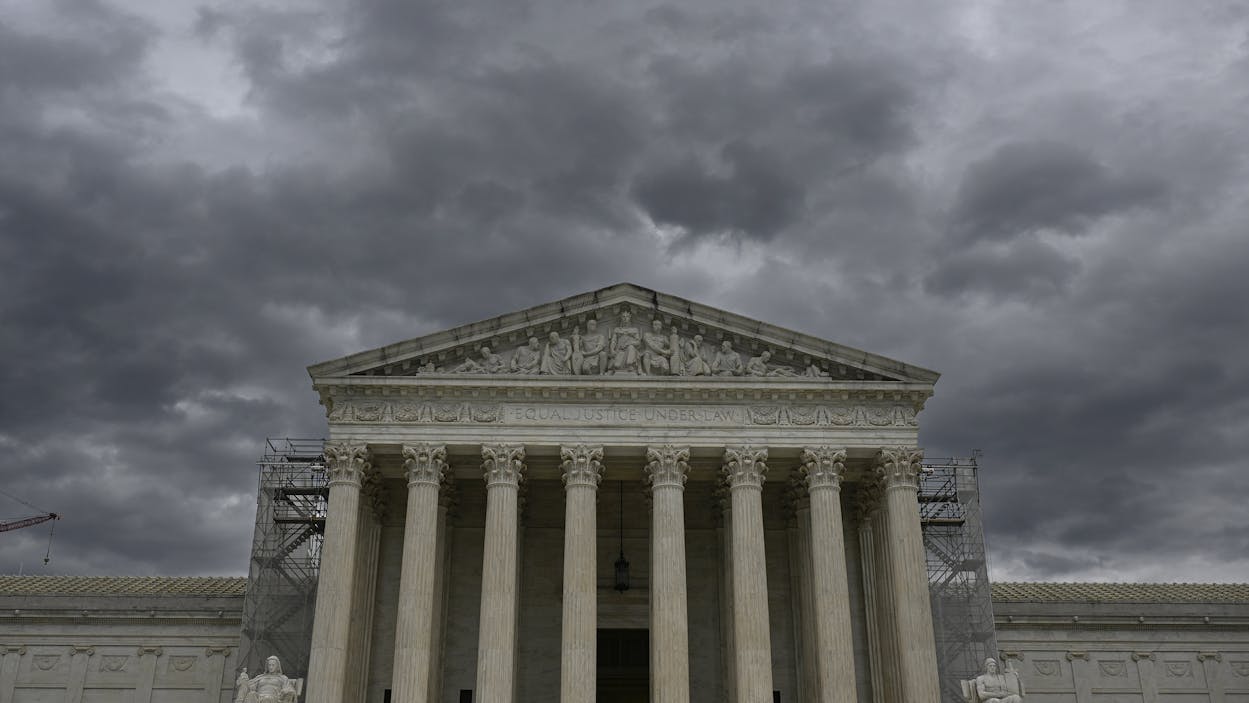The U.S. Supreme Court ruled on Tuesday that a law allowing Texas police to arrest people suspected of illegally crossing the Texas-Mexico border can take effect while a legal battle over the new state law empowering local law enforcement plays out.
The decision comes a day after the high court had extended its temporary block of the law.
Justice Samuel Alito had issued the block as the high court considered an appeal from the Biden administration, which has argued Senate Bill 4 is unconstitutional because it interferes with federal immigration laws.
The legal case is far from over. The case remains pending before the U.S. Fifth Circuit Court of Appeals. Eventually it has to be resolved in a federal court in Austin, where the lawsuits were originally filed.
In February, U.S. district judge David Ezra, in Austin, blocked SB 4, saying the law “threatens the fundamental notion that the United States must regulate immigration with one voice.” Attorney General Ken Paxton’s office immediately appealed the ruling to the Fifth Circuit Court of Appeals, which reversed Ezra’s ruling.
The Biden administration then appealed to the Supreme Court, which temporarily blocked the law until March 18 as it considered the federal government’s request to stop the law from going into effect.
SB 4 seeks to make illegally crossing the border a Class B misdemeanor, carrying a punishment of up to six months in jail. Repeat offenders could face a second-degree felony with a punishment of two to twenty years in prison.
The law also requires state judges to order migrants to return to Mexico if they are convicted; local law enforcement would be responsible for transporting migrants to the border. A judge could drop the charges if a migrant agrees to return to Mexico voluntarily.
The high court’s move comes during a presidential election year in which immigration has become a key issue for voters who, in November, will decide a rematch of the 2020 election between President Joe Biden and former president Donald Trump. As the court battles play out, historically high numbers of people are arriving at the U.S.-Mexico border this year, many of them seeking asylum.
Earlier this year, a bipartisan immigration bill failed in the U.S. Senate after Trump told Republicans not to vote for it, in part so that he could campaign on the issue. The bill proposed overhauling the nation’s asylum system to provide quicker decisions on asylum requests and allow the president to order the immediate deportation of migrants at the border when immigration agents get overwhelmed.
Biden has created some narrow paths for migrants to enter the U.S. legally with policies that seek to deter migrants from entering the country illegally. He also supported the bipartisan legislation that unraveled this year. Republicans have accused him of incentivizing illegal immigration by not taking harder stances on border security.
Trump has said that immigration enforcement will be among his priorities if he wins back the presidency in November. During his presidency, his administration rolled out a series of policies aimed to prevent people from seeking asylum at the U.S.-Mexico border and to deter migrants from crossing the border illegally. He was heavily criticized for a “zero tolerance” policy that required Border Patrol agents to separate children from their parents and for using racist language to describe migrants.
Governor Greg Abbott and other Texas Republicans also have made border security and immigration a priority in recent years. Abbott signed SB 4 in December, marking Texas’s latest attempt to try to deter people from crossing the Rio Grande.
In December, the American Civil Liberties Union, the ACLU of Texas, and the Texas Civil Rights Project sued Texas on behalf of El Paso County and two immigrant rights organizations—El Paso–based Las Americas Immigrant Advocacy Center and Austin-based American Gateways—over the new state law.
The following month, the U.S. Department of Justice filed its lawsuit against Texas. The lawsuits have since been combined. Last week, the Mexican American Legal Defense and Educational Fund and the National Immigration Law Center also filed a lawsuit on behalf of La Union del Pueblo Entero, an advocacy group in the Rio Grande Valley founded by farmworker rights activists Cesar Chavez and Dolores Huerta.
This article originally appeared in the Texas Tribune.
- More About:
- Politics & Policy






